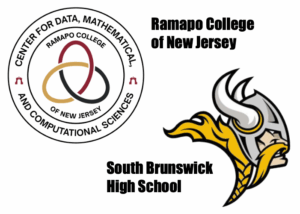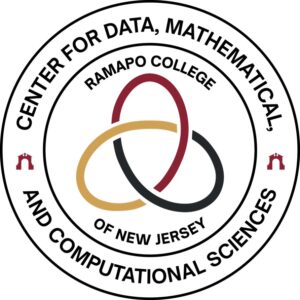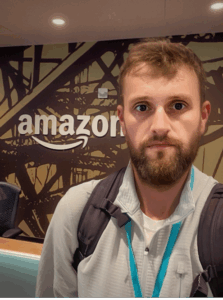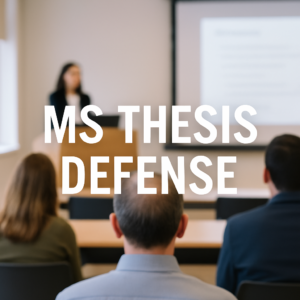- About Ramapo
- Academics
- Admissions & Aid
- Student Life
- Athletics
- Alumni
- Arts & Community
- Quick Links
- Apply
- Visit
- Give
Center for Data, Mathematical and Computational Sciences
December 4, 2025Ramapo's Internship Training

Build Real Experience with Ramapo’s Internship Training and Simulations
Through our Forage account, we are offering free virtual job simulations from companies like JPMorgan, Y Combinator, and Deloitte.
You work through actual tasks these companies give to interns—data analysis, coding challenges, security assessments—at your own pace. Each simulation takes about 5-6 hours and earns you a certificate for your resume and LinkedIn.
It’s a practical way to explore what different roles actually involve and build skills beyond what we cover in class.
Ramapo students who complete these simulations are 71% more likely to land internships,
DMC Related Job Simulations
We’ve set up landing pages with simulations relevant to our majors:
Getting Started
You can access the trainings using your Ramapo College email, and through Connect. Pick a simulation that interests you, and work through it when you have time. No application required.
Questions? Send emails to Danielle Silvia – Cahill Center – dsilvia@ramapo.edu
Categories: Internship Story
December 1, 2025Ramapo DMC 12/1 - Updates and important events
Dear DMC Students –
As we wind down on the Fall semester, please keep the following in mind:
Spring 2026 Registration
If you have not registered for your Spring 2026 classes yet please do so immediately. The College modifies course offerings based on enrollment – over enrolled and under enrolled courses necessitate changes, and delaying your registration reduces our ability to make those adjustments for you.
If you are eligible for CMPS 366 (Organization of Programming Languages), please register for Spring 2026. There is no guarantee an alternative will be available in Fall 2026, so do not delay taking this course.
Winter 2026 Registration
Two courses being offered relevant to your majors this Winter – CMPS 130 and CMPS 147. CMPS 130 is a required course in Data Science, CMPS 147 is a required course in Computer Science and Cybersecurity. If you have questions about the Winter session, please email me.
Graduate Students – Thesis Proposal Course
If you are an MS student and plan to do your Thesis in either Summer 2026 or Fall 2026, please register for your 1-credit Thesis Proposal in Spring 2026. This is a required course that you must complete prior to your thesis semester. It is currently open for registration. Please contact me if you have any trouble signing up.
4+1 MSDS / MSCS / MSAM (Seniors)
Registration for graduate courses as an undergraduate requires an override (even if you are in the 4+1). Email me to get the override for registration!Read more
Looking for a job? ITS is looking for a programmer
Categories: Computer Science, Cybersecurity, Data Science, Mathematics, MSCS, MSDS, News + Updates
November 18, 2025DMC Partners with South Brunswick High School on AI in Computer Science Education

The DMC Center is collaborating with South Brunswick High School on a research project exploring how generative AI tools can support – rather than replace – student learning in introductory computer science courses.
As AI tools like ChatGPT become increasingly common in education, there’s an open question: how do we help students use these tools effectively without short-circuiting the learning process? This partnership between DMC Director Scott Frees and SBHS Computer Science teacher (and Ramapo adjunct Computer Science professor) Steven Schiff aims to find out.
The study involves high school students across eight sections of “Computer Science in the 21st Century,” testing three different approaches to AI access: no AI, limited AI (where students use it only for understanding), and a custom-build AI assistant – built at the Ramapo DMC Center – designed to explain concepts without writing code for students. By rotating these conditions across different programming topics, the research team hopes to understand which approaches help students learn foundational concepts most effectively.
This collaboration represents the kind of practical research needed as educators adapt to rapidly evolving technology. Rather than banning AI or giving students unlimited access, the project explores middle ground—helping students develop both programming skills and the judgment to use AI tools responsibly. The findings will provide guidance for computer science educators navigating similar questions about AI integration in their own classrooms.
Learn more about the project at codewithgrace.com.
Categories: Computer Science, Cybersecurity, Data Science
November 10, 2025Ramapo DMC 11/10 - Updates and important events
Dear DMC Students –
A few important notes about upcoming events and deadlines. Lot’s of info and some internship opportunities – please read it all!
Are you interested in an MS degree?
If you are a freshman, sophomore, or junior – you have time to enroll in a 4+1! No matter what your major is, you have the option to add an MS in Computer Science, Data Science or Applied Mathematics in just one extra calendar year – while saving 30% on the normal tuition costs. Learn more here, and reach out to me to find out more. Enrolling is simple, and you are not making a commitment to stay for graduate school – you are just giving yourself the option!
Fill out this form to enroll, and send it to me to get started
4+1 MSDS / MSCS / MSAM (Current)
If you are currently in a 4+1 in MSDS, MSCS, MSAM – you should be planning to take a few graduate courses in during the final two semesters on campus. In some cases, you will also need to take some specific courses during your junior year. Please set up an advising meeting with me to discuss your pathway! 5 Year plans are available for your review for every combination of BS and MS degree that we have in the DMC.
4+1 MSDS / MSCS / MSAM (Seniors)
Registration for graduate courses as an undergraduate requires an override (even if you are in the 4+1). Email me to get the override for registration!
[Read more]
Pivoting C.S. Degree into a Career into Forensics and Cyber Security
Please join us in ASB 524 on November 12th at 5:30pm for a career-focused talk by Ramapo Computer Science alum (2008), Craig Brady. For those of you interested in understanding how computer science and cybersecurity overlap, this is a must-attend talk!. Hear how programming skills evolve into building forensic tools, leading security teams, and tackling today’s toughest cyber challenges.
[Read more]
Registration – Winter and Spring 2026
Registration for both the Winter 2026 and Spring 2026 semesters has begun. If you have not registered for your Spring 2026 classes yet please do so immediately. The College modifies course offerings based on enrollment – over enrolled and under enrolled courses necessitate changes, and delaying your registration reduces our ability to make those adjustments for you.
Please note that there are two courses being offered relevant to your majors this Winter – CMPS 130 and CMPS 147. CMPS 130 is a required course in Data Science, CMPS 147 is a required course in Computer Science and Cybersecurity. Both courses are also electives in Bioinformatics and may substitute for some mathematics requirements. If you have questions about the Winter session, please email me.
Schedule Virtual Office Hours / Advisement Appointment
Schedule On Campus Office Hours (ASB 409)
Categories: News + Updates
November 3, 2025Ramapo DMC 11/3 - Updates and important events
Dear DMC Students –
A few important notes about upcoming events and deadlines:
Pivoting C.S. Degree into a Career into Forensics and Cyber Security
Please join us in ASB 524 on November 12th at 5:30pm for a career-focused talk by Ramapo Computer Science alum (2008), Craig Brady. For those of you interested in understanding how computer science and cybersecurity overlap, this is a must-attend talk!. Hear how programming skills evolve into building forensic tools, leading security teams, and tackling today’s toughest cyber challenges.
[Read more]
Fall 2025 Graduation
If you plan to graduate after the Fall semester, you must complete your graduation application by November 6th. This goes for both undergraduates and graduate (MS) students.
- Your first step: Contact your academic advisor and request that they lift your graduation hold. If you have trouble reaching your academic advisor, please contact me.<
- Once the hold is removed: You can access and complete the application in Self-Service.
- Please note: If you are planning to graduate after the Spring 2026 semester (May 2026), this is not relevant to you – you will apply for graduation next semester.
Registration – Winter and Spring 2026
Registration for both the Winter 2026 and Spring 2026 semesters has begun. If you have not registered for your Spring 2026 classes yet please do so immediately. The College modifies course offerings based on enrollment – over enrolled and under enrolled courses necessitate changes, and delaying your registration reduces our ability to make those adjustments for you.
Please note that there are two courses being offered relevant to your majors this Winter – CMPS 130 and CMPS 147. CMPS 130 is a required course in Data Science, CMPS 147 is a required course in Computer Science and Cybersecurity. Both courses are also electives in Bioinformatics and may substitute for some mathematics requirements. If you have questions about the Winter session, please email me.
Schedule Virtual Office Hours / Advisement Appointment
Schedule On Campus Office Hours (ASB 409)
4+1 MSDS / MSCS / MSAM Seniors
If you are graduating at the end of Spring 2026 or Fall 2026, and you are in a 4+1 in MSDS, MSCS, MSAM – you should be planning to take a few graduate courses in Spring 2026. If you aren’t sure which ones to take, you should be setting up a time to meet with me! Registration for graduate courses as an undergraduate requires an override (even if you are in the 4+1). Email me to get the override for registration!
Read more
Categories: News + Updates
October 30, 2025Highlight Your Internship Story: Pranish Khanal - Workforce Opportunity Services

Welcome to the DMC’s Highlight Your Internship Story series, where we showcase the impressive work our students are doing during their internships. These stories highlight how hands-on experience is helping them grow professionally and launch successful careers in tech.
Congratulations to Pranish Khanal, Computer Science major at Ramapo! This fall Pranish has been working for Workforce Opportunity Services (WOS) in New York City as a Junior Development Intern. So far he hashelped redesign two organizational websites. He also provide technical support, helping troubleshoot issues and adapt to various projects in a fast-paced small company environment. Beyond coding, He has had the chance to work on digital marketing campaigns across LinkedIn and Google Ads which has been a completely different experience that taught him a lot new perspectives. This provided valuable insights into marketing a company and the science behind it. Interning at WOS has been one of his best learning experiences, combining web development, data analysis, marketing strategy, and how businesses operate beyond just the technical side.
If you are in any of the DMC majors – Computer Science, Data Science, Cybersecurity, Mathematics, and Bioinformatics – and would like to be featured, please contact Dr. Al-Juboori (aaljuboo@ramapo.edu) or Dr. Frees (sfrees@ramapo.edu)!
Categories: Computer Science, Internship Story
October 29, 2025DMC Students Develop AI-Powered Gut Health Platform for Microsoft Imagine Cup

Interdisciplinary team combines wearable biosensing, machine learning, and personalized nutrition
Two DMC students are pioneering the future of personalized nutrition with GutFeel, a digital health platform that uses artificial intelligence to predict how individual bodies respond to food in real-time. The project merges wearable technology, continuous glucose monitoring, and machine learning to help people understand their unique digestive and metabolic patterns before symptoms occur.
The Vision
Magdalena Nikolova, a Biology/Neuroscience major, and Hristo Denev, a Computer Science major, recognized that more than 60% of adults experience gastrointestinal discomfort, yet existing diet apps treat everyone the same. Their solution: integrate continuous glucose monitors (CGM) with heart rate variability (HRV) data from smartwatches, then use Azure Machine Learning to build predictive models tailored to each person’s physiology.
“We’re shifting from reactive symptom tracking to proactive prediction,” the team explains. By analyzing how specific foods, timing, and stress levels affect digestion and metabolism, GutFeel empowers users – from pre-diabetic individuals to athletes to clinical patients – to make informed decisions based on their unique biology.
Building a Research-Grade Platform
The project leverages Microsoft’s cloud infrastructure, combining Azure IoT Central for data collection, Azure Machine Learning for prediction (using Random Forest and LSTM models), and a .NET MAUI + Blazor interface for the user experience. The result is what the team calls “the world’s first adaptive gut-response intelligence system.”
IRB-Approved Study
Under the guidance of faculty advisors Dr. Paramjeet Bagga and Dr. Scott Frees, Nikolova and Denev secured IRB approval to conduct a controlled study with approximately 20 participants from Ramapo College and the local community. Participants will wear CGM sensors and Garmin Vivosmart 5 smartwatches for two weeks while logging meals and symptoms through a custom web application.
Industry Recognition and Support
The project has already attracted significant external support:
- Dexcom and Abbott, two of the world’s largest continuous glucose monitoring companies, provided funding for 44 CGM sensors (valued at approximately $2,200) – more than double what the team initially requested
- The team is entering Microsoft’s Imagine Cup, one of the world’s largest technology and innovation competitions for students, which encourages young developers and researchers to use technology to solve meaningful real-world problems. The competition provides mentorship, funding opportunities, and global visibility for selected projects. If GutFeel wins in May 2026, the team will receive $50,000 USD to scale their platform into a startup. Participation in the competition also grants the team access to $1,000 in Microsoft Azure credits to support the project’s cloud computing and machine learning infrastructure needs.
Impact Beyond Campus
By participating in Microsoft’s Imagine Cup, the GutFeel project brings international visibility to Ramapo College while connecting DMC students with leaders in AI, cloud computing, and digital health. The platform’s potential extends from reducing gastrointestinal-related healthcare costs to improving quality of life at the population level through personalized, data-driven nutritional guidance.
The DMC continues to demonstrate how interdisciplinary collaboration – combining biology, computer science, data analytics, and cloud computing – can address real-world health challenges while providing students with hands-on research experience and entrepreneurial opportunities.
Categories: Uncategorized
October 24, 2025Ramapo DMC 10/24 - Updates and important events
Dear Students –
Registration begins October 27th (Monday). You should be reviewing the Spring 2026 schedule and identifying courses you plan to take.
If you have an advisement hold, you must meet with your academic advisor. If you don’t know how your advisor is, you can contact either myself or Student Success (success@ramapo.edu). You will not be able to register if your hold is not removed.
Winter session course registration begins 10/27 as well. There are a number of introductory level courses in CMPS offered, along with other courses across the college.
Please note that when making an appointment with your advisor, you should prepare. Review the schedule of offered courses, your 4-year plan, and your degree audit.
You may schedule advisement with me here:
Schedule Virtual Office Hours / Advisement Appointment
Schedule On Campus Office Hours (ASB 409)
4+1 MSDS / MSCS / MSAM Seniors
If you are graduating at the end of Spring 2026 or Fall 2026, and you are in a 4+1 in MSDS, MSCS, MSAM – you should be planning to take a few graduate courses in Spring 2026. If you aren’t sure which ones to take, you should be setting up a time to meet with me! Registration for graduate courses as an undergraduate requires an override (even if you are in the 4+1). Email me to have the override in place for registration!
Read more
Pivoting C.S. Degree into a Career into Forensics and Cyber Security
Please join us in ASB 524 on November 12th at 5:30pm for a career-focused talk by Ramapo Computer Science alum (2008), Craig Brady. For those of you interested in understanding how computer science and cybersecurity overlap, this is a must-attend talk!. Hear how programming skills evolve into building forensic tools, leading security teams, and tackling today’s toughest cyber challenges.
[Read more]
Categories: News + Updates
October 13, 2025Ramapo DMC 10/13 - Updates and important events
Dear DMC Students –
Registration will start 10/27. You should be reviewing the Spring 2026 schedule and identifying courses you plan to take.
If you have an advisement hold, you must meet with your academic advisor. If you don’t know how your advisor is, you can contact either myself or Student Success (success@ramapo.edu). You will not be able to register if your hold is not removed.
Winter session course registration begins 10/27 as well. There are a number of introductory level courses in CMPS offered, along with other courses across the college.
4+1 MSDS / MSCS / MSAM Seniors
If you are graduating at the end of Spring 2026 or Fall 2026, and you are in a 4+1 in MSDS, MSCS, MSAM – you should be planning to take a few graduate courses in Spring 2026. If you aren’t sure which ones to take, you should be setting up a time to meet with me! Registration for graduate courses as an undergraduate requires an override (even if you are in the 4+1). Email me to have the override in place for registration!
Read more
DMC (NSF S-STEM) Scholarship – APPLY NOW
Don’t miss this opportunity! The deadline has been extended – if you are a sophomore, this scholarship can start now, and pays up to $65,000 over the next four years. If you aren’t sure if you are eligible, apply – we’ll work through the details to establish eligibility. Learn more and apply here. If you want to apply, email me by Tuesday October 14th, 5pm. If I receive your email, I can consider your application even if we are waiting on additional materials from you.
Event: Internship Experience Panel Talk
Join us on Tuesday, October 14, 2025, from 6:00 p.m. to 7:00 p.m. in ASB 429, as Ramapo students share their internship experiences, insights, and lessons learned in tech and beyond. Hear more about how they got their internships, what they learned, and what’s next.
Please register here
Event: Career Conversations: Communication Careers in a Tech Driven World
I encourage you to join us for Career Conversations: Communication Careers in a Tech Driven World on Wednesday, October 15 at 6pm in the Trustees Pavilion. Alumni and professionals – including Jeff Rayvid, DMC Advisory Board member and adjunct professor this Spring, who also works with Amazon – will share their career journeys and insights. Additional panelists from FanDuel and NBC Universal will share their experiences as well. This is a great chance to learn, network, and explore opportunities in tech, computer science, and communications. Please sign up on Handshake if you plan to attend. Refreshments will be provided. All majors are welcome!
Categories: News + Updates
October 13, 20254+1 Program: Graduate Courses for Senior Year Students
Students enrolled in one of the DMC 4+1 programs (MSDS, MSCS, or MSAM) should plan to take three graduate courses during their senior year. These courses are taken exclusively in your final or second-to-last semester as an undergraduate and count toward both your Bachelor’s and Master’s degrees.
Registration Information
Registration opens October 27, 2025
Important: You must email Prof. Scott Frees at sfrees@ramapo.edu for an override prior to registering for any graduate courses.
MS in Data Science (MSDS)
Senior year students will take the following three graduate courses:
- DATA 620 – Ethics in Data & Computing (Spring 2026)
- DATA 601 – Introduction to Data Science (Fall)
- CMPS 530 – Python for Data Science (Fall)
MS in Computer Science (MSCS)
Senior year students will take the following three graduate courses:
- CMPS 531 – Data Structures & Algorithms (Spring 2026)
- DATA 620 – Ethics in Data & Computing (Spring 2026)
- Category 1 elective (Fall)
MS in Applied Mathematics (MSAM)
Senior year students will take the following three graduate courses:
- DATA 620 – Ethics in Data & Computing (Spring 2026)
- DATA 590 – Data Storytelling (Spring 2026)
- MATH 680 – Advanced Mathematical Modeling (Fall)
Additional Information
MATH 570 – Applied Statistics is offered in Summer 2026. Summer courses are recommended to be taken after you graduate with your Bachelor’s degree to avoid additional undergraduate tuition charges.
For questions about the 4+1 program or course selection, please contact Prof. Scott Frees at sfrees@ramapo.edu.
Categories: Uncategorized
October 1, 2025Spring 2026 MS Course - DATA STORYTELLING

With registration approaching, check out this new course we are offering in the Spring. It’s online, and doesn’t have prerequisites!
This course, DATA 690 TOPICS: DATA STORYTELLING, equips students with the essential skills to effectively communicate insights from data. Building upon the principles of data visualization, the curriculum integrates techniques from writing, public speaking, and strategic communication. Students will learn to craft compelling narratives using data, employing frameworks such as the STAR method to structure their stories for maximum impact. The course focuses on transforming complex data analysis into clear, persuasive, and memorable presentations for diverse audiences.
- MSDS Technical Elective
- MSCS Category 1 Elective
- MSAM Category Category 2 Elective
Semester: Spring 2026
Delivery Mode: Online (Asynchronous)
Instructor: Jeff Ravid
Instructor Bio
Jeff Rayvid is a data analytics professional with 8+ years of experience at Amazon, Disney Streaming Services, and Google. At Amazon, he manages business strategy and analytics for Prime Gaming. Previously, he led analytics for Disney+, ESPN+, and Disney Bundle marketing campaigns, and developed machine learning algorithms for Google’s advertising at Essence.
Jeff holds an M.S. in Data Analytics from Fordham University and specializes in Python, R, SQL, machine learning, and big data technologies including Hadoop and Spark. He brings real-world experience in predictive modeling, data visualization, and translating analytics into business decisions across entertainment, advertising, and e-commerce industries.
Categories: Uncategorized
September 30, 2025Ramapo DMC 9/30 - Updates and important events
Dear DMC Students –
Registration is coming up for Spring 2026. The actual calendar for when you can register will be posted here: https://www.ramapo.edu/web-resources/registration/. Check back soon, as the calendar should be published in the next few weeks.
You should start thinking about what classes you are interested in taking, and reach out to your academic advisor to resolve any academic holds you might have now. If you would like to meet with me, please use the appointment links at the bottom of this email.
Please see below for some upcoming events and news about your major.
DMC (NSF S-STEM) Scholarship – APPLY NOW
Don’t miss this opportunity! The NSF S-STEM Roads Scholarship provides up to $15,000 per year during your undergraduate studies and up to $20,000 per year in graduate school for selected students. The program also includes mentoring, networking, and career preparation to support your success. Learn more and apply here – This scholarship is administered by DMC – please don’t miss out!
Internship: Data Science for Social Good: Paid DMC Internships Available
The DMC is partnering with the Center for Food Action to offer paid internships for undergraduate and graduate students to use data science to combat hunger in Bergen and Passaic Counties. Students will work on real-world projects including inventory forecasting, mobile app development, and geographic impact analysis. Note – we are hiring 4-5 interns, and you will be placed on a project that best suits your background – don’t hesitate to apply, there’s plenty of opportunity!
Read more
Event: Internship Experience Panel Talk
Join us on October 14, 2025, as Ramapo students share their internship experiences, insights, and lessons learned in tech and beyond. Hear more about how they got their internships, what they learned, and what’s next.
Read more
Event: Career Conversations: Communication Careers in a Tech Driven World
I encourage you to join us for Career Conversations: Communication Careers in a Tech Driven World on Wednesday, October 15 at 6pm in the Trustees Pavilion. Alumni and professionals – including Jeff Rayvid, DMC Advisory Board member and adjunct professor this Spring, who also works with Amazon – will share their career journeys and insights. Additional panelists from FanDuel and NBC Universal will share their experiences as well. This is a great chance to learn, network, and explore opportunities in tech, computer science, and communications. Please sign up on Handshake if you plan to attend. Refreshments will be provided. All majors are welcome!
Categories: News + Updates
September 23, 2025Ramapo DMC 9/23 - Updates, Important Events and Internship Opportunity
Dear DMC Students
Thank you to those of you who attended our first lecture series event on September 9th, the event was a great opportunity to hear about how AI is affecting our industry, and many of you participated in a really insightful Q/A following the meeting. We’ll have another Ramapo alum to campus to talk about Cybersecurity in November – stay tuned for more info!
Here are some things worth taking a look at happening at Ramapo over the next few weeks:
Data Science for Social Good: Paid DMC Internships Available
The DMC is partnering with the Center for Food Action to offer paid internships for undergraduate and graduate students to use data science to combat hunger in Bergen and Passaic Counties. Students will work on real-world projects including inventory forecasting, mobile app development, and geographic impact analysis.
[Read more]
Internship Experience Panel Talk
Join us on October 14, 2025, as Ramapo students share their internship experiences, insights, and lessons learned in tech and beyond. Hear more about how they got their internships, what they learned, and what’s next.
[Read more]
NSF Scholarship Award – DMC
We’ve been awarded an NSF S-STEM grant to support the next generation of STEM leaders, creating new opportunities for students in Computer Science, Data Science, Mathematics, Cybersecurity, and Bioinformatics. Current sophomores – APPLY NOW for Cohort A – DON’T MISS THIS OPPORTUNITY:
- Expected awards: ~ 6 students
- Up to $15,000 (undergraduate) $20,000 (graduate) per academic year
- Covers unmet financial need for tuition, fees, room & board, books, and supplies (including Fall 2025)
- Applications Accepted starting: September 12th, 2025
- Application Deadline: October 3rd, 2025
- Decision Date: October 20th 2025
- Minimum GPA: 2.5
- You must be a current Sophomore – 24-48 credits completed at time of application
Scholarship window for funding unmet needs: Fall 2025 through Spring 2028 (undergraduate); Summer 2028 through Summer 2029 (graduate – optional) - [Read more] – Scroll to the bottom to apply! Ask me if you have any questions
Categories: News + Updates
September 23, 2025Ramapo College Partners with Center for Food Action to Combat Hunger Through Data Science Innovation

Ramapo College’s Center for Data, Mathematical, and Computational Sciences (DMC) has partnered with Center for Food Action (CFA) to use data science in the fight against food insecurity across Bergen and Passaic Counties. Thanks to generous support from the Daffron Family Foundation, this collaboration will provide paid internships for Ramapo students to solve real-world challenges facing our region’s most vulnerable residents.
The partnership centers on four projects supporting CFA’s mission and resource optimization. Students will develop tools to forecast demand and identify funding gaps using real-time food pricing, create systems that consolidate data into standardized reports, build a mobile app for grocery categorization, and design maps to highlight service gaps and improve distribution routes.
Working under faculty supervision, student teams will collaborate directly with CFA leadership over 12 weeks to deliver these solutions. Students will gain hands-on experience with web scraping, statistical modeling, mobile app development, and geospatial analytics while seeing how their technical work directly impacts families facing food insecurity.
This partnership creates a pipeline for socially conscious data scientists while delivering immediate benefits to CFA’s mission of preventing hunger and homelessness in northern New Jersey.
For Students: Join the Fight Against Hunger
Data Science and Computer Science students can apply now for these paid internship opportunities. We’re seeking up to 5 students total: 1-3 seniors or graduate students and 2-3 underclassmen ready to apply their skills for social good. Internships will pay up to $5,000 over the project period (12-15 weeks, ~20 hours/week). We are seeking students with a strong coding background, solid communication and presentation skills, and a genuine interest in social good.
To apply, send your resume to Dr. Scott Frees (sfrees@ramapo.edu) and a brief (250 word) personal statement describing your skills, experience, and interest in the position by October 3rd, 2025. We will be interviewing candidates during the second week of October. Internships will start by the end of October and continue for approximately 12-15 weeks.
For Community Organizations: Partner with Ramapo DMC
Does your organization have data challenges that student teams could help solve? The DMC is eager to create more community partnerships. Contact Dr. Scott Frees (sfrees@ramapo.edu) to explore how our talented students can support your mission while gaining real-world experience.
Categories: Uncategorized
September 22, 2025DMC Student Publishes Cybersecurity Research at IEEE International Conference
Master of Science in Data Science (MSDS) student Chris Hainzl and his faculty advisor Dr. Sourav Dutta have published their research at the 12th IEEE International Conference on Cyber Security and Cloud Computing (IEEE CSCloud 2025). Their paper, titled “Dynamic Feature Clustering for Anomaly Detection in Streaming Cybersecurity Data,” addresses one of the most pressing challenges in modern cybersecurity: detecting anomalous behavior in real time from continuous data streams such as firewall logs, intrusion detection systems, and network monitors.
The research introduces Adaptive Feature Clustering for Streaming Data (AFCSD), a novel clustering approach that incrementally updates feature groupings by tracking covariance matrix drift. This dynamic method allows feature clusters to adapt as data distributions shift, enhancing both the accuracy and computational efficiency of anomaly detection in non-stationary environments.
The publication of this work at a premier IEEE conference underscores the significant contributions Ramapo students and faculty are making in advancing scalable, real-time solutions to critical cybersecurity challenges.
Congratulations to Chris and Dr. Dutta on this outstanding achievement!
Categories: Cybersecurity
September 11, 2025Save the date: Pivoting C.S. Degree into a Career into Forensics and Cyber Security

Join us for the second DMC Lecture Series of Fall 2025 – and the second by a Ramapo CS Alum!
Pivoting a C.S. Degree into a Career in Forensics and Cyber Security
November 12th, 5:30pm
ASB 524
A degree in Computer Science provides the foundation for solving real-world problems in cybersecurity and digital forensics. In this presentation, I will share how core programming and problem-solving skills translated into developing custom forensic scripts, building in-house automation tools, and streamlining complex data processes. I will also highlight how computer science fundamentals extend into my everyday work dealing with developers to senior leadership.
Craig Brady is a Senior Director of Cybersecurity with over 17 years of experience leading high-performing teams across incident response, threat intelligence, engineering, and vulnerability management. Craig specializes in building scalable security operations programs, developing insider threat frameworks, and guiding organizations through complex mergers, compliance requirements, and emerging threat landscapes. Beyond his technical expertise, Craig is recognized as a collaborative leader and mentor, focused on professional growth, team development, and fostering a culture of accountability. Outside of cybersecurity, he enjoys 3D printing, smart home projects, and traveling.
Categories: Cybersecurity, Lecture Series, MSCS, MSDS
September 9, 2025Highlight Your Internship Story: Emily Morra - New Jersey Jackals

Welcome to the DMC’s Highlight Your Internship Story series, where we showcase the impressive work our students are doing during their internships. These stories highlight how hands-on experience is helping them grow professionally and launch successful careers in tech.
Congratulations to Emily Morra, Data Science major at Ramapo! This summer, Emily worked with the New Jersey Jackals, a semi-professional baseball team, as an Analytics Intern. She manned the TrackMan Baseball system, which uses AI cameras around the stadium to track pitches and generate information on a wide variety of useful statistics, such as spin rate, exit velocity, launch angle, and more. The analytics team uses this data to create scouting reports for coaching staff and players ahead of each series or trade transaction. Being able to translate the raw data into understandable reports was a skill that could be translated into any concentration of data science, and the fast-paced environment tested her quick learning and thinking skills. Emily has a Sports Management minor and is looking to pursue a career in Sports Analytics, and this experience served as a meaningful step towards her future.
If you are in any of the DMC majors – Computer Science, Data Science, Cybersecurity, Mathematics, and Bioinformatics – and would like to be featured, please contact Dr. Al-Juboori (aaljuboo@ramapo.edu) or Dr. Frees (sfrees@ramapo.edu)!
Categories: Data Science, Internship Story
September 8, 2025Ramapo DMC 9/8 - Updates and important events
Dear DMC Students –
I hope the semester has started well for you! Please see below for some upcoming events and news about your major. Make sure you register for Tuesday’s AI talk by Devinder Sodhi if you plan on attending!
DMC Lecture Series: The Future Is Not Fixed
AI is reshaping work, shifting from certainty to probability. Come hear Devinder Sodhi (’16) on how to thrive in a world of non-deterministic AI. Sept 9 @ 5:45pm, ASB 429.
[Read more]
MS Thesis Proposal + Info Session
Are you thinking about joining one of our 4+1 programs in Computer Science, Data Science, or Applied Mathematics? Join the info session right after The DMC Lecture series on Sept 9 in ASB 123 to learn more.
[Read more]
Internship Experience Panel Talk
Join us on October 14, 2025, as Ramapo students share their internship experiences, insights, and lessons learned in tech and beyond. Hear more about how they got their internships, what they learned, and what’s next.
[Read more]
NSF Scholarship Award – DMC
We’ve been awarded an NSF S-STEM grant to support the next generation of STEM leaders, creating new opportunities for students in Computer Science, Data Science, Mathematics, Cybersecurity, and Bioinformatics. Current sophomores – watch your email in the coming days for details on how you can benefit.
[Read more]
Important dates on the Academic Calendar
Tomorrow is the last day for Add/Drop with 50% tuition refund
Deregistration for non-payment is September 11th, if you have an outstanding balance please contact student accounts – studentaccts@ramapo.edu
Categories: News + Updates
September 8, 2025Save the Date - Internship Experience Panel Talk

We’re excited to announce that our upcoming event will take place on Tuesday, October 14, 2025, from 6:00–7:00 pm. This session will feature a student panel highlighting their internship experiences—covering everything from the projects they worked on and skills they gained to the challenges they overcame and the advice they have for peers. More details will be shared soon, but for now, mark your calendars and get ready for an engaging and insightful evening.
This event is co-sponsored by the Computer Science Club, Cahill Center and the DMC Lecture Series.
Please check back for more information about location and event registration.
Categories: Internship Story, Lecture Series
August 30, 2025Ramapo College Awarded Prestigious NSF S-STEM Grant to Support Next Generation of STEM Leaders

Ramapo College of New Jersey has received a $2M U.S. National Science Foundation S-STEM (Scholarships in Science, Technology, Engineering, and Mathematics) grant to launch the Ramapo Opportunities for Advanced Degrees in STEM (ROADS) program. This multi-year award will provide comprehensive scholarship support and specialized academic programming for academically talented students with financial need.
ROADS targets five high-growth disciplines through our Center for Data, Mathematical, and Computational Sciences: Computer Science, Data Science, Cybersecurity, Mathematics, and Bioinformatics. These fields are experiencing unprecedented demand, with job growth projections ranging from 11% to 36% over the next decade – far exceeding the national average.
What makes this program particularly innovative is its integration with Ramapo’s accelerated 4+1 degree pathways. Students can complete both their bachelor’s and master’s degrees in just five years, with significant cost savings. During their senior year, students take three graduate courses covered by undergraduate tuition, saving over $12,000 toward their graduate degree.
The scholarship program addresses both financial and developmental barriers that often prevent talented students from succeeding in STEM fields. Selected students will receive full coverage of their unmet financial need – up to $15,000 annually for undergraduates and $20,000 for graduate students. Beyond financial support, ROADS scholars will participate in a unique four-course research sequence designed to develop their identity as researchers and prepare them for advanced careers or graduate study.
The program’s comprehensive support system includes cohort-based mentorship, one-on-one faculty advising, undergraduate research opportunities, and professional development activities. Students will have access to conference presentations, career fairs, and networking events with industry professionals through our established advisory board.
This award builds on Ramapo’s strong tradition of supporting STEM, including our Upward Bound-Math Science Program and Educational Opportunity Fund initiatives. The ROADS program specifically serves the New York-New Jersey region, which ranks as the number one area nationally for job postings in data and computer science fields.
Applications for the first cohort of ROADS recipients will open soon, with separate application cycles for incoming freshmen and current students. The program aims to support 35 students over five years, with the goal of achieving 95% retention rates and ensuring 90% of graduates enter ROADS-related careers within two years.
This investment in STEM education directly supports national priorities in innovation and economic competitiveness, preparing graduates to contribute to cybersecurity, data analysis, and technological advancement in an increasingly digital world.
More information about application processes and program requirements are available NOW.
Categories: Uncategorized
August 29, 2025Learn how Ramapo's MSDS aligns with the nationally recognized ADSA core Data Science competencies

The Academic Data Science Alliance (ADSA) Data Science Taxonomy represents a comprehensive framework of competencies for Master’s-level data science programs, developed through collaboration with leading academic institutions and federal partners including NSA, DOD, NIH, and NSF.
This nationally recognized taxonomy establishes standardized competencies that ensure graduates possess the critical skills needed in today’s data-driven economy, making it highly valued by employers across industries.
Ramapo College’s Master of Science in Data Science program aligns exceptionally well with this prestigious framework, demonstrating our commitment to providing students with industry-relevant, federally-recognized competencies that will distinguish them in the competitive data science job market. It’s one of the reasons Ramapo’s MSDS has been consistently listed as one of Fortune’s Best Masters degrees in Data Science.
Our Master of Science (MS) in Data Science degree is a 30-credit program with course work in Python, R, Data Visualization, Database Systems, Machine Learning, Statistics and Mathematical Modeling. Full-time students will complete their degree in 18 months. Courses are delivered as a combination of online, hybrid, and evening in-seat format – you can complete the degree while being on campus just one night a week.
Explore the detailed mappings below to see how each course in our program contributes to building these essential, nationally-recognized data science skills.
| Foundations of Analytics: Statistics | |
|---|---|
Data Collection DesignMethodical approach to gather observations, measurements and information from different sources |
|
InferenceProcess of using statistics to make conclusions about a population based on a random sample |
|
Modeling (Stochastic)Method of generating sample data and making real-world predictions using statistical models |
|
Multivariate AnalysisStatistical techniques that simultaneously look at three or more variables |
|
Statistical LearningProcess of learning from data using statistical algorithms |
|
Bayesian MethodsTheory based on Bayesian interpretation of probability |
|
Causal inferenceProcess of determining independent effect of a phenomenon |
|
Model uncertaintyLevel of understanding of world representation for mathematical modeling |
|
Experimental designCarrying out research in objective and controlled fashion |
|
SamplingSelection of subset from statistical population to estimate characteristics |
|
| Foundations of Analytics: Mathematics | |
Set theory and basic logicFundamental mathematical concepts dealing with collections of objects and logical reasoning |
|
Matrices and basic linear algebraMathematical structures and operations for solving systems of linear equations |
|
Optimization – algorithmMathematical techniques for finding the best solution from all feasible solutions |
|
Probability theoryMathematical framework for analyzing random phenomena and uncertainty |
|
Arithmetic and GeometryBasic mathematical operations and study of shapes, sizes, and properties of space |
|
Graph Theory and NetworksStudy of graphs as mathematical structures used to model pairwise relations |
|
| Foundations of Analytics: Data Analytics | |
Exploratory AnalysisApproach to analyzing data sets to summarize their main characteristics |
|
Variable DistributionsDescription of how values of a variable are spread or distributed |
|
Scatter PlotsGraph using Cartesian coordinates to display values for two variables |
|
Correlation AnalysisStatistical method used to evaluate the strength of relationship between variables |
|
Conditional ProbabilityProbability of an event occurring given that another event has occurred |
|
Spatial AnalysisExamining locations, attributes, and relationships of features in spatial data |
|
Data VisualizationRepresentation of data through graphics like charts, plots, infographics |
|
Artificial IntelligenceTechnologies that enable computers to perform advanced functions including analysis |
|
Classical AITraditional artificial intelligence approaches using symbolic reasoning |
|
Modern AI/Data Driven AIContemporary AI approaches based on machine learning and data analysis |
|
Machine LearningSubfield of AI using data and algorithms to learn and improve accuracy over time |
|
Classical MLTraditional machine learning algorithms and statistical methods |
|
Deep LearningMachine learning based on artificial neural networks with multiple processing layers |
|
NLPBranch of AI allowing computers to interpret human language similarly to humans |
|
Uncertainty Quantification/CharacterizationAssessment and representation of uncertainties in computational models |
|
Data MiningPractice of analyzing large databases to generate new information |
|
| Foundations of Analytics: Data Modeling | |
Model Development and DeploymentProcess of creating, testing, and implementing predictive models |
|
Model Risks and Mitigation StrategiesIdentification and management of potential model failures |
|
Model analysis and ValidationEvaluation of model performance and reliability |
|
Data VisualizationRepresentation of data through graphics like charts, plots, infographics |
|
| Systems and Implementation: Computing and Computer Fundamentals | |
Data StructuresWays of organizing and storing data in computer programs |
|
AlgorithmsStep-by-step procedures for solving computational problems |
|
SimulationsImitation of real-world processes or systems using computational models |
|
Data EngineeringPractice of designing and building systems for collecting and analyzing data |
|
Database DesignProcess of producing detailed data models and database structures |
|
Data Preparation and CleaningProcess of detecting and correcting corrupt or inaccurate records |
|
Records Retention and CurationManagement and preservation of data records over time |
|
Big Data SystemsTechnologies for processing data sets too large for traditional software |
|
Data Security and PrivacyProtection of data from unauthorized access and ensuring privacy |
|
Cloud ComputingDelivery of computing services over the internet |
|
High Performance ComputingUse of parallel processing for running advanced computation programs |
|
| Systems and Implementation: Software Development and Maintenance | |
ProgrammingProcess of creating computer programs using programming languages |
|
Collaboration and version controlTools and practices for team software development |
|
Database/data warehousingSystems for storing and managing large amounts of structured data |
|
| Data Science Project Design: Users and Impacted Groups | |
Implications of analysis and resultsUnderstanding the broader impact and consequences of data analysis |
|
Defining the user and UX designCreating user-centered design for data products and interfaces |
|
Story-telling with dataCommunicating insights and findings through compelling data narratives |
|
Human-centered designDesign approach that focuses on human needs and experiences |
|
| Data Science Project Design: Research Methods | |
Hypothesis developmentFormulating testable predictions based on observations |
|
Defining data-driven questionsCrafting questions that can be answered through data analysis |
|
Computational logicApplication of logical reasoning in computational problem-solving |
|
Data-driven decision makingMaking decisions based on data analysis rather than intuition |
|
Data/research lifecycleComplete process from data collection to research conclusions |
|
Analysis and presentation of decisionsCommunicating analytical findings to support decision-making |
|
| Data Science Project Design: Data | |
Data acquisitionProcess of gathering data from various sources |
|
Data governanceManagement of data availability, usability, integrity and security |
|
Data provenance and citationDocumentation of data sources and proper attribution |
|
| Data Science Project Design: Open Science by Design | |
Reproducibility, replicability, repeatabilityEnsuring research can be verified and repeated |
|
Interactive computingComputing environment that allows real-time user interaction |
|
| Data Science Project Design: Visualization | |
Grammar of graphicsSystem for describing and building statistical graphics |
|
Static and dynamic visualization designCreating both fixed and interactive data visualizations |
|
| Data Science In Practice: Responsible Practices | |
Relevant domain knowledge for effective decision-makingUnderstanding the specific field or industry context |
|
Legal considerationsUnderstanding legal requirements and constraints in data use |
|
Data privacyProtection of personal and sensitive information in datasets |
|
Data and product/system security and resilienceEnsuring robust protection against threats |
|
Data and product/system governanceOversight and management of data systems |
|
Research integrityAdherence to ethical principles in research conduct |
|
Assessment, monitoring, and management of risksSystematic approach to identifying and controlling risks |
|
Understanding and uncovering biasIdentifying and addressing systematic errors in data and analysis |
|
Interpretability and ExplainabilityMaking complex models understandable to humans |
|
Human impacts of designConsidering how design decisions affect people and communities |
|
Responsible data collectionEthical approaches to gathering data from individuals and communities |
|
Understanding impacted communitiesRecognizing how data work affects different groups of people |
|
| Data Science In Practice: Effective Collaboration | |
Working with stakeholdersCollaborating effectively with various project participants |
|
Working with domain expertsPartnering with subject matter experts |
|
Project managementPlanning, executing, and controlling project activities |
|
Infrastructure cost and benefitsEvaluating financial and operational aspects of technology infrastructure |
|
Participatory research / stakeholder engagementIncluding community members in research processes |
|
| Data Science In Practice: Communication | |
Technical writing skillsCommunicating complex technical information clearly |
|
Communication (oral) and presentation skillsEffectively presenting information to audiences |
|
DocumentationCreating clear and comprehensive project documentation |
|
Categories: Data Science, MSDS
August 26, 2025Thesis Information - Fall 2025 and Spring 2026
If you’re aiming to graduate in Spring 2026, you must register for Thesis Proposal (DATA/CMPS/MATH 745) this Fall semester. This one-credit, pass/fail course guides you through crafting and securing approval of your formal thesis proposal; upon passing, it enables you to enroll in Thesis (750) the following term.
The Thesis (750) is a two-credit, independent research project requiring a written deliverable, presentation, and faculty panel evaluation.
Who should attend the info session?
Any student planning to graduate in Spring 2026 and needing to complete the 745/750 sequence should join. Come right after the DMC Lecture Series talk on September 9th, and join us in ASB 123 around 7:15pm for all the essential details: what to expect from 745, how to prepare, timeline checkpoints, and next steps.
Categories: Uncategorized
August 26, 2025Join the ICPC Programming Competition
The ICPC (International Collegiate Programming Contest) Regional Competition will take place during the Fall 2025 semester (likely at the end of October or mid-November). This is a great opportunity to enhance your programming and problem-solving skills while collaborating with students from other schools in New Jersey, New York, and Connecticut.
Each team will consist of three students, who will work together to solve 10 challenging programming problems within 5 hours. Training will be provided during the semester and in preparation for the contest.
If you are interested in joining a team, contact Dr. Ali Juboori – aaljuboo@ramapo.edu. Once your participation is confirmed, additional resources and guidance will be shared to help you prepare.
Learn more about ICPC
This is an excellent way to strengthen your programming abilities, critical thinking, and teamwork skills!
Categories: Uncategorized
August 26, 2025Ramapo DMC 8/26 - Updates and important events
Dear DMC Students –
Welcome back! You’re receiving this because you are in Computer Science, Data Science, Mathematics, or Cybersecurity (undergraduate, graduate, or 4+1).
- If you’re a graduate student, I am your primary advisor.
- If you’re a 4+1 student, I’ll meet with you to plan schedules junior and senior year, and you can always reach out with questions.
- I’m also the Convenor of Computer Science and Cybersecurity, so don’t hesitate to ask me about those programs.
- I hold in-person and virtual office hours, with times added throughout the semester. Please check often and schedule a meeting: Virtual Office Hours — On Campus (ASB 409)
Here’s some upcoming dates and events to keep in mind:
DMC Lecture Series: The Future Is Not Fixed
AI is reshaping work, shifting from certainty to probability. Come hear Devinder Sodhi (’16) on how to thrive in a world of non-deterministic AI. Sept 9 @ 5:45pm, ASB 429.
[Read more]
ICPC Programming Competition
Test your skills in the ICPC Regional Contest this fall—teams of three compete to solve 10 challenging problems in 5 hours. Great way to boost programming, problem-solving, and teamwork.
[Read more]
MS Thesis Proposal + Info Session
Planning to graduate (Masters degree) Spring 2026? You must register for Thesis Proposal (745) this Fall. Join the info session right after The DMC Lecture series on Sept 9 in ASB 123 to learn more.
[Read more]
Add/Drop Deadline
Deadline for 100% refund is Sept 2; 50% refund ends Sept 9. Please make sure you review the academic calendar for Fall 2025
[Read more]
Congrats to Our Interns
Check out stories of our interns featured on the DMC site. If you had an internship or co-op and want to be recognized, contact Dr. Al-Juboori.
[Read more]
DMC Center – ASB 123
Students in CS, Data, Math, and Cyber can use ASB 123 for study, group work, and events. Need card access? Just let me know.
Hope the Fall semester starts out well for you!
Categories: News + Updates
August 15, 2025DMC Lecture Series: The Future Is Not Fixed: How AI & Non‑Deterministic Systems Are Reshaping Work

The first event for this year’s DMC Lecture series features a Ramapo Computer Science alum – Save the date!
Tuesday September 9th, 2025
ASB 429 @ 5:30pm
Artificial intelligence is changing how we work, moving us from predictable processes to systems that operate on probabilities and uncertainty. This talk explores what this shift means for students entering the workforce. Devinder will examine how humans and AI collaborate in practice, what skills are becoming essential, and how to make responsible decisions when working with uncertain technologies. Students will learn practical strategies for thriving in careers where adaptability and critical evaluation of AI outputs are key professional skills.
Speaker Bio
Devinder Sodhi is a Ramapo College Computer Science graduate (2016), who currently shapes AI curriculum development at DataCamp and leads technology communities at Frontier Tower and AICamp SF. His engineering background spans diverse industries, including jet engine testing systems at Qt, surgical robotics at Johnson & Johnson, and medical imaging platforms at Canfield Scientific. Sodhi focuses on practical AI implementation and education, teaching professionals how to effectively integrate AI tools into their workflows while maintaining critical oversight of probabilistic outputs.
Categories: Data Science, Lecture Series, MSCS, MSDS
July 30, 2025Highlight Your Internship Story: Prashant Shah - Trimble Inc

Welcome to the DMC’s Highlight Your Internship Story series, where we showcase the impressive work our students are doing during their internships. These stories highlight how hands-on experience is helping them grow professionally and launch successful careers in tech.
Congratulations to Prashant Shah, Computer Science / Data Science double major at Ramapo! Prashant’s summer as a Software Engineering intern at Trimble Inc. was an invaluable experience. The theoretical concepts from database design principles to software architecture patterns he learned at Ramapo became the foundation for solving actual business challenges. Working with C# .NET framework and Blazor WebAssembly, he developed configuration interfaces that users depend on, bridging the gap between academic learning and industry demands.
The fast-paced environment taught Prashant skills beyond coding. He mastered Agile development practices, learned to navigate complex enterprise systems, and discovered how to balance technical constraints with user needs. Database optimization techniques from his coursework proved essential when handling performance challenges, while his data science background helped him understand the broader implications of the systems we were building. Perhaps most valuable was learning the collaborative nature of software development. Dev meetings revealed how feedback shapes features, while working with APIs and distributed services showed Prashant the interconnected reality of modern applications. The introduction of AI-powered development tools like Cursor and Copilot opened his eyes to how the industry is evolving, demonstrating that staying current with emerging technologies is crucial.
By the final showcase, Prashant had contributed to a production-ready application, experienced the complete software development lifecycle from conception to deployment, and gained confidence in his ability to deliver meaningful solutions in professional settings. This internship reinforced his passion for technology while providing practical skills that will serve his throughout his career.
If you are in any of the DMC majors – Computer Science, Data Science, Cybersecurity, Mathematics, and Bioinformatics – and would like to be featured, please contact Dr. Al-Juboori (aaljuboo@ramapo.edu) or Dr. Frees (sfrees@ramapo.edu)!
Categories: Internship Story
July 27, 2025Highlight Your Internship Story: Edy Martinez - Bristol Myers Squibb

Welcome to the DMC’s Highlight Your Internship Story series, where we showcase the impressive work our students are doing during their internships. These stories highlight how hands-on experience is helping them grow professionally and launch successful careers in tech.
Congratulations to Edy Martinez, Cybersecurity major at Ramapo! This summer, Edy is interning at Bristol Myers Squibb as an IT Systems Intern, working at the intersection of AI and pharmaceutical research. He’s been involved in AI-driven data extraction projects and the management of asset and oncology research data. This experience has given him valuable insight into the corporate world and taught him what it means to work in an environment where patient safety is the top priority. Edy has especially enjoyed connecting with colleagues from diverse backgrounds, and the vanilla lattes from the office’s coffee machine!
If you are in any of the DMC majors – Computer Science, Data Science, Cybersecurity, Mathematics, and Bioinformatics – and would like to be featured, please contact Dr. Al-Juboori (aaljuboo@ramapo.edu) or Dr. Frees (sfrees@ramapo.edu)!
Categories: Internship Story
July 23, 2025Highlight Your Internship Story: Ritika Dawadi - Pfizer

Welcome to the DMC’s Highlight Your Internship Story series, where we showcase the impressive work our students are doing during their internships. These stories highlight how hands-on experience is helping them grow professionally and launch successful careers in tech.
Congratulations to Ritika Dawadi, Computer Science major at Ramapo with a minor in Bioinformatics. Ritika is spending her summer as a Research and Development Intern at Pfizer, one of the world’s premier biopharmaceutical companies committed to delivering breakthroughs that improve patients’ lives. Ritika is part of the QIDO team (Quality, Informatics, and Data Operations), which plays a critical role in ensuring quality and maintaining data integrity within Pfizer’s research and development efforts, particularly in bioanalytical laboratories. She is applying her background in computer science and bioinformatics to support informatics initiatives that enhance data workflows, automation, and quality assurance. She shares that she is thoroughly enjoying her internship experience, gaining valuable industry exposure while contributing to meaningful scientific work
If you are in any of the DMC majors – Computer Science, Data Science, Cybersecurity, Mathematics, and Bioinformatics – and would like to be featured, please contact Dr. Al-Juboori (aaljuboo@ramapo.edu) or Dr. Frees (sfrees@ramapo.edu)!
Categories: Internship Story
July 20, 2025Highlight Your Internship Story: Collins Otieno - Michigan State University

Welcome to the DMC’s Highlight Your Internship Story series, where we showcase the impressive work our students are doing during their internships. These stories highlight how hands-on experience is helping them grow professionally and launch successful careers in tech.
Congratulations to Collins Otieno, Computer Science major at Ramapo. This summer, Collins is interning at Michigan State University as a research assistant in the Secure and Intelligent Things (SEIT) Lab, led by Dr. Qiben Yan. He’s working on a privacy-preserving, multimodal anomaly detection system for smart homes that integrates sensor, audio, and visual data to detect critical events like falls. A highlight of the project is the use of cross-knowledge transfer to train a sensor-only model that inherits the accuracy of multimodal learning while preserving user privacy. This experience strengthens his skills in machine learning, IoT security, and ethical data handling while allowing him to contribute to research that supports safer living for older adults.
If you are in any of the DMC majors – Computer Science, Data Science, Cybersecurity, Mathematics, and Bioinformatics – and would like to be featured, please contact Dr. Al-Juboori (aaljuboo@ramapo.edu) or Dr. Frees (sfrees@ramapo.edu)!
Categories: Internship Story
June 26, 2025Ramapo students shine at 2025 NJUMC
Congratulations to Ramapo students for placing in the 2025 annual New Jersey Undergraduate Mathematics Competition NJUMC!
Adrian Zaremba, Afrona Tozluku and Bibhu Bhatta placed 4th in the team competition out of 24 teams. Adrian Zaremba placed 4th in the individual competition, out of 72 students.
Congratulations to all Ramapo College’s representatives at this year’s NJUMC:
- Adrian Zaremba (Mathematics major)
- Afrona Tozluku (Mathematics major)
- Bibhu Bhatta (Computer Science major)
- Amir Sela (Mathematics major and Data Science major)
- Abdurahim Sanginov (Computer Science major)
- Genaro Sanchez Feliz (Data Science)
- Justin Haskoor (Computer Science major)
- Shane Fleischman (Mathematics Major)
Thank you to Dr. Katarzyna Kowal for assembling and advising Ramapo’s students and leading them at the competition! Dr. Kowal’s student advisee, Justin Haskoor, also presented a research poster at the competition on the Central Limit Theorem. Adrian Zaremba, Bibhu Bhatta, and Justin Haskoor are also members of the Ramapo College Chapter of Pi Mu Epsilon National Mathematics Honor Society. By their participation in the NJUMC competition, they fulfilled one of the activities for the chapter.
Categories: Uncategorized
June 22, 2025Highlight Your Internship Story: John Warren - Amazon Web Services (AWS)

Welcome to the DMC’s Highlight Your Internship Story series, where we showcase the impressive work our students are doing during their internships. These stories highlight how hands-on experience is helping them grow professionally and launch successful careers in tech.
Congratulations to John Warren, Computer Science major at Ramapo. This summer, John is interning at Amazon Web Services (AWS) as a Cloud Support Associate Intern. He is currently getting up to speed with AWS technologies and preparing to take both the AWS Certified Cloud Practitioner and the AWS Certified Solutions Architect Associate certifications. A major highlight of this experience has been working side by side with AWS Cloud Support Engineers and learning how they diagnose and resolve real-world technical issues for large-scale clients. This internship has already helped him grow tremendously in his understanding of cloud infrastructure and AWS services.
If you are in any of the DMC majors – Computer Science, Data Science, Cybersecurity, Mathematics, and Bioinformatics – and would like to be featured, please contact Dr. Al-Juboori (aaljuboo@ramapo.edu) or Dr. Frees (sfrees@ramapo.edu)!
Categories: Internship Story
June 22, 2025Highlight Your Internship Story: Hristo Denev - UPS

Welcome to the DMC’s Highlight Your Internship Story series, where we showcase the impressive work our students are doing during their internships. These stories highlight how hands-on experience is helping them grow professionally and launch successful careers in tech.
Congratulations to Hristo Denev, Computer Science major at Ramapo. This summer, Hristo is interning at UPS as a Technology Intern. He is working on the team that is developing the software and hardware for the sorting automation and labeling processes and is responsible for the sorting of over 16 million packages daily. This experience is helping him become a better software developer by exposing him to the real-world problems of one of the biggest delivery and logistics companies in the world. He is especially enjoying the environment at work because it allows him to maintain a good work-life balance while enabling him to perform at his best.
If you are in any of the DMC majors – Computer Science, Data Science, Cybersecurity, Mathematics, and Bioinformatics – and would like to be featured, please contact Dr. Al-Juboori (aaljuboo@ramapo.edu) or Dr. Frees (sfrees@ramapo.edu)!
Categories: Internship Story
May 2, 2025DMC Masters Thesis Defenses - Spring 2025

Come support our DMC students defending their MS defense, and see the good work they’ve done! Open to Ramapo students, faculty, and the public!
Wednesday April 30th
Kasmi Yussof – MS Data Science
Quantitative Model Tools
11:15am-12:15pm – ASB 423
Tuesday May 6th
Daniel Figueiras – MS Data Science
Using Free-Text Clinical Notes to Improve Model Performance in Healthcare
9am-10am – ASB 220
Tuesday May 6th
Olivia Church – MS Applied Mathematics
Exploring Jane Addams Papers Project Documents Through Topic Modeling and Multilabel Classification
11am-12pm – ASB 220
Wednesday May 7th
Olivia Arva Diana – MS Data Science
Predictive Modeling for Email Marketing Success: Optimizing Campaign Deliverability and Google Postmaster Metrics via Tree-Based Regression
11am-12pm – ASB 525
Wednesday May 7th
Harshitha Dalli Sai – MS Data Science
The Impact Of Natural Disasters On Border Crossings In The US
1pm-2pm – Greenhouse Classroom
Friday May 9th
Maxwell Bilyk – MS Data Science
Analyzing Artificial Intelligence’s Ability to Detect Misinformation
10:30-11:30am – Virtual
Request link from Kathleen Walsh, kwalsh@ramapo.edu
Wednesday May 14th
Anthony Messana – MS Computer Science
An Empirical Comparative Analysis of Skyline Query Algorithms for Incomplete Data
1pm-2pm – Virtual
Request link from Ali Al-Juboori, aaljuboo@ramapo.edu
Wednesday May 14th
Brian DeNichilo – MS Data Science
Building a Collaborative Recommender System for Magic the Gathering
7pm-8pm – Virtual
Request link from Donovan McFeron, dmcferon@ramapo.edu
Categories: Uncategorized
March 27, 2025Humanity in the Age of AI & Cybersecurity: An Interdisciplinary Exploration

Please join us for a Presidential Speaker Series fireside chat with President Jebb and Charlie Lewis, McKinsey & Co. Partner, exploring AI and Cybersecurity’s transformative impact. Drawing from military, academic, and corporate expertise, Lewis will unpack critical insights for business, education, government, and humanity. Q&A to follow. All welcome!
April 7th, 1pm
Trustees Pavilion
No registration is required!
Categories: Uncategorized
March 27, 2025New Cybersecurity Major featured in Ramapo Magazine

DMC’s new Cybersecurity major, created in Fall 2024, is featured in this semester’s Ramapo Magazine. Check out what the College has to say about the program, cybersecurity, and career opportunities in the field!
We are addressing the growing demand for cybersecurity professionals. More than a traditional technical program, this degree integrates technical skills with insights from psychology, ethics, and criminal justice.
Students will gain comprehensive training that prepares them for the complex challenges of cybersecurity, learning not just coding and network protection, but also the critical human and ethical dimensions of digital security. With over 700,000 unfilled cybersecurity jobs in the U.S., this program offers an exciting opportunity for students to enter a dynamic and essential field.
Read the full Ramapo Magazine article
Categories: Uncategorized
February 19, 2025Interested in double majoring in Computer Science and Cybersecurity at Ramapo?

If you are wondering if you can double major in Computer Science and Ramapo’s newest tech major – Cybersecurity, the answer is yes! Here’s a guide with the things you need to consider, along with a possible 4-year plan.
Double majors are able to double count up to 9 courses for both their Computer Science and Cybersecurity BS degree. The guide helps you understand which courses are double counted, which cannot be, and how to make sure you stay on track.
Categories: Uncategorized
January 28, 2025DMC Fair keynote speaker: Michael Geraghty

Director of the NJ Cybersecurity and Communications Integration Cell (NJCCIC) and Chief Information Security Officer for the State of New Jersey
DMC Fair Save-The-Date!
Date/Time: Wednesday, 4/23/25, 5-7 pm
Location: Ramapo College, Trustees Pavilion
Join us for the Center for Data, Mathematical, and Computational Sciences (DMC) Fair on April 23th, 2025.
Following the keynote speech, attendees can view posters showcasing Ramapo students’ research projects in Data, Mathematical, and Computational Sciences. Attendees will be able to network with Ramapo students and faculty as well as industry professionals. Awards will be given for the best posters and refreshments will be served.
From Bytes to Insights: Practical Data Science Applications in Cybersecurity
In this presentation, Michael Geraghty, Chief Information Security Officer (CISO) for the State of New Jersey will bridge the gap between academic data science concepts and their real-world applications in the field of cybersecurity. Drawing from extensive industry experience, Mr. Geraghty will demonstrate how data science techniques are applied in threat detection, risk assessment, and incident response in enterprise environments. Through case studies and practical examples, attendees will gain insights into the challenges and opportunities of applying data science in a cybersecurity context. By the end of the session, attendees will have a clearer understanding of how their data science skills can be applied to solve real-world cybersecurity problems, as well as the career paths available in this rapidly evolving field. The talk will conclude with a Q&A session.
Michael Geraghty is the State of New Jersey’s Chief Information Security Officer (CISO) and Director of the New Jersey Cybersecurity and Communications Integration Cell (NJCCIC). In these roles Director Geraghty is responsible for the development and execution of the State’s cybersecurity strategy. He is responsible for leading and coordinating New Jersey’s cybersecurity efforts while building resiliency throughout the State and has direct responsibility for all aspects of statewide cybersecurity operations; governance, risk and compliance; and incident response.
Mr. Geraghty is an accomplished cybersecurity executive with a history of building innovative and model programs in private and public sector enterprises including roles as CISO of the Hudson’s Bay Company, Chief Information Officer of the National and International Centers for Missing and Exploited Children, Vice President of High Technology Investigations at Prudential Financial, and Network Intrusion Detection Manager, Lucent Technologies/Bell Labs. Mr. Geraghty began his career with the New Jersey State Police, where he served 12 years and led the formation and development of its High Technology Crimes Investigations Unit.
He has provided expert testimony before the United States Congress and in federal, state, and international courts on computer crime investigations and forensics. Geraghty is a past president of the Northeast Chapter of the High Technology Crimes Investigation Association and has held leadership roles in the National Strategic Policy Council on Cyber and Electronic Crime.
Categories: Data Science, Lecture Series, Mathematics, MSCS, MSDS
Copyright ©2025 Ramapo College Of New Jersey. Statements And Policies. Contact Webmaster.
